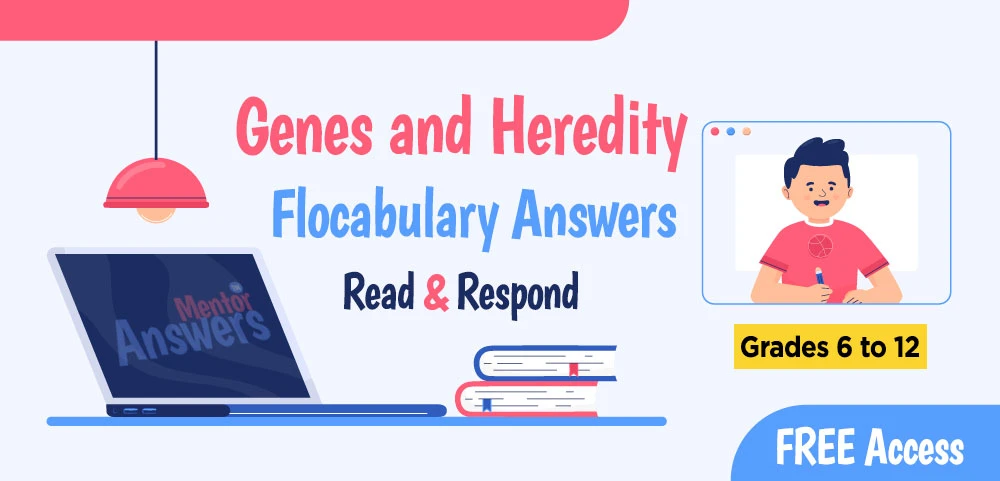Are you looking for a reliable source of answers for the Genes and Heredity Flocabulary Quiz, Read & Respond? You’ve come to the right place!
We have a team of teachers who have checked and verified the correct answers for all the questions. You can trust our expertise and save time by using our answers key.
Genes and Heredity Flocabulary Quiz Answers Key
- heredity.
- deoxyribonucleic acid, or DNA.
- cloning.
- precipitation.
- meiosis.
- recessive traits.
- genes.
- heredity.
- mutated cells.
- the double helix structure of DNA.
- that there are dominant and recessive genes.
- evolutionary traits in human beings.
- a double helix of chromosomes.
- one strand of chromosomes, or half of the new organism’s DNA.
- a dominant gene and a recessive gene.
- multiple mutated cells.
- 100% white flowers
- 75% purple flowers and 25% white flowers
- 50% purple flowers and 50% white flowers
- 100% purple flowers
- identical to its parent.
- identical to its stem cell.
- unique because it is a mixture of DNA.
- half like its father and half like its mother.
- scientists add or change the genes on a chromosome.
- natural selection is used to determine which traits to keep or eliminate.
- dominant and recessive genes are mixed together randomly.
- mitosis divides a cell into two equal parts.
- chromosome quads.
- mutational pairs.
- nucleotides.
- mitochondria.
- 100,000
- 23
- 14
- 46
- meiosis
- incomplete dominance
- cloning
- selective breeding
Genes and Heredity Flocabulary Read & Respond Answers
Expand your knowledge by exploring the Read & Respond answers related to the topic of our Subject:
- humans and frogs
- birds and lions
- humans and apes
- lions and alligators
- to understand that each base only connects to another specific base.
- to understand more about the sugar in each nucleotide.
- to understand that it looks like a twisted ladder that spirals around.
- to understand the role of the phosphate in each nucleotide.
- useless
- destructive
- impossible
- innovative
- Everyone in your extended family has green eyes.
- Your mom has blue eyes, your dad has brown eyes, and you have brown eyes.
- Your parents have blue eyes, your siblings have blue eyes, and so do you.
- People with blond hair often have blue eyes.
- the ability to produce offspring with more desirable traits.
- traits can skip a generation or two.
- children can have curly hair.
- family members have different traits.
- will most likely die.
- will receive chemical radiation.
- may evolve for better survival.
- may be duplicated.
If you have any questions or need more answers key for your favorite subject, please leave a comment below or contact us through our website. We would love to hear from you and assist you in your learning journey.
Are you interested in delving into additional subjects related to Flocabulary? Check Here To Get All Flocabulary Answers Key

